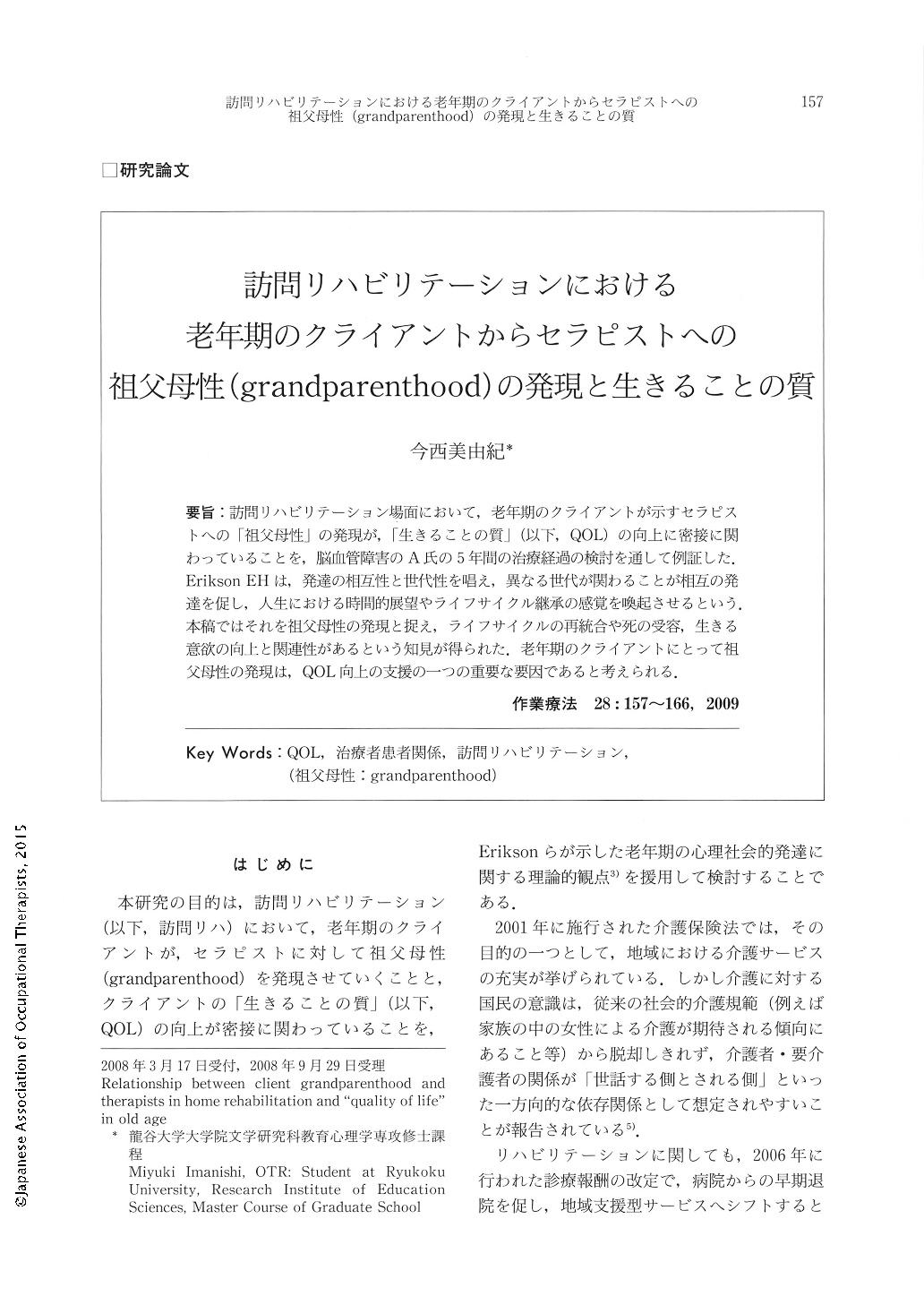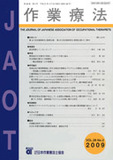Japanese
English
- 販売していません
- Abstract 文献概要
- 1ページ目 Look Inside
- 参考文献 Reference
- サイト内被引用 Cited by
要旨:訪問リハビリテーション場面において,老年期のクライアントが示すセラピストへの「祖父母性」の発現が,「生きることの質」(以下,QOL)の向上に密接に関わっていることを,脳血管障害のA氏の5年間の治療経過の検討を通して例証した.Erikson EHは,発達の相互性と世代性を唱え,異なる世代が関わることが相互の発達を促し,人生における時間的展望やライフサイクル継承の感覚を喚起させるという.本稿ではそれを祖父母性の発現と捉え,ライフサイクルの再統合や死の受容,生きる意欲の向上と関連性があるという知見が得られた.老年期のクライアントにとって祖父母性の発現は,QOL向上の支援の一つの重要な要因であると考えられる.
The purpose of this study is to demonstrate the interrelationship between treatment and quality of life in clients and therapists in old age in the case of outpatient rehabilitation. Erikson, E.H. advanced the idea that mutuality and generation in the development stage are closely related. This means that engagement of people in different generations help them develop together and remind them of gradual progress and a sense of cyclical continuity in life. This study is defined as becoming a grandparent. The quality of life of the client suffering from cerebrovascular disorder and undergoing a 5- year treatment was studied and confirmed that grandparenthood promoted reintegration of the lifecycle, receptivity of death and improvement of the will to live. For the elderly client, becoming a grandparent is considered one of the supporting measures for improving quality of life.

Copyright © 2009, Japanese Association of Occupational Therapists. All rights reserved.


